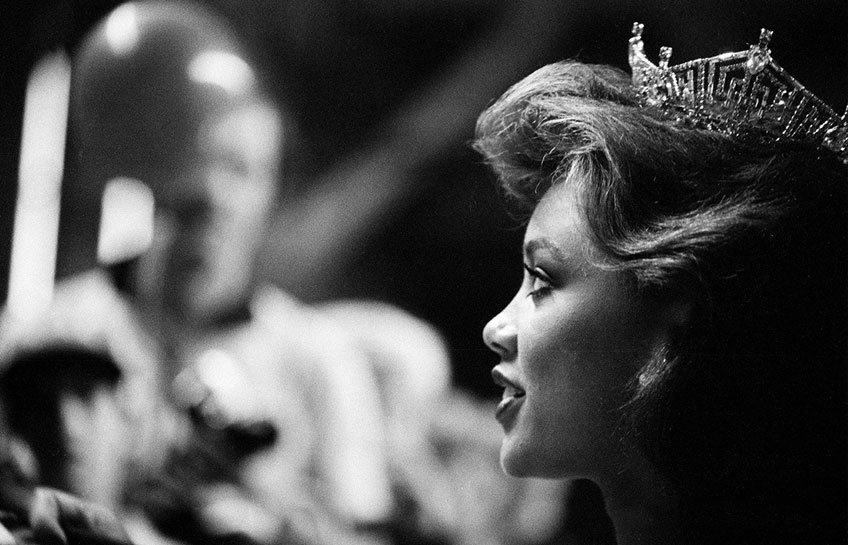Vanessa Williams made history in 1983 by becoming the first Black woman to be crowned Miss America. However, her groundbreaking achievement was soon overshadowed by a scandal involving Penthouse magazine publishing unauthorized nude photos of Williams, leading to her resignation. Through resilience and hard work, Williams eventually overcame the fallout to rebuild her career as an acclaimed singer and actor. Her journey encompasses themes of racism, misogyny, victim blaming, and triumphing over adversity that still resonate strongly decades later.
In 1984, Vanessa Williams seemingly had it all as she prepared to complete her historic year-long tenure as the first Black Miss America. But behind the scenes, events were unfolding that would turn her world upside down. Within months, Williams would lose her crown and become tabloid fodder across the country. However, even intense public shaming and career damage could not stop her meteoric rise to the top.
Vanessa Williams’ experiences reveal the injustice that Black women have long faced when their bodies and sexuality are exploited without consent by powerful institutions. However, her resilience and grace in overcoming the Penthouse photo scandal and its aftermath remain a guiding star for those struggling today against similar violations.
Vanessa Williams Becomes First Black Miss America
In September 1983, a young Vanessa Williams made history on the Miss America stage. The 20-year-old sophomore from Syracuse University was crowned the first African American winner of the pageant, breaking racial barriers in an iconic American institution.
Her Groundbreaking Win Signifies Racial Progress
For the Miss America pageant, Williams’ victory was a chance to shed its segregated past and rehabilitate its image. The organization had banned women of color until 1970, and Williams was only the fourth Black woman to even compete at the national level. Against the background of America’s ongoing civil rights struggles, Williams’ win held symbolic power – a sign of racial enlightenment and integration at the height of the Reagan era.
In Williams’ emotional crowning moment, many saw hope for greater diversity and inclusion across society. “There I was: a chocolate soldier in a Vanessa Williams war,” she later said. The public understood that her win was historic, with one newspaper headline the next day exclaiming “A Dream Come True!”
Immediate Backlash and Discrimination
However, the dream quickly soured for Williams amid racist backlash. She received death threats and hate letters, spoiling her victory. The local paper in her home state of New York called her win “an assault on American womanhood.” In various corners, voices declared that Miss America should represent a white ideal of beauty and femininity.
Williams later shared: “I got the kind of racist vitriol that you expect when you break a barrier.” The hostility even came from within the Miss America organization itself, with former winner Mary Kaye Schmitz criticizing Williams as undeserving. “It’s too political,” she infamously declared. “I’m German-English-Irish. I’m going to have to renounce my crown.”
The unapologetic racism threatened to overshadow Williams’ win. Armed guards had to escort her at events due to safety fears. Yet she refused to be deterred – Penthouse magazine would soon radically disrupt her pioneering reign.
Eyes on the Prize: College Scholarship Funds
Behind the scenes, the Syracuse student was focused on a more practical goal – the scholarship funds that came with winning. Competing for Miss New York earlier, she set her sights on the ample college money awarded to Miss America winners.
“It has been a longtime goal of mine to want to be the first Black Miss America,” she stated back then. “And I felt that I would be letting myself down, I would be letting my race down, and I would be letting women down.”
Little did she know at that moment how soon that goal would devastatingly slip through her fingers.
The Penthouse Photo Scandal
In July 1984, tragedy struck for Williams when Penthouse magazine published unauthorized nude pictures of her in an infamous spread. The photos were taken years earlier before her pageant career, but that hardly mattered as the resulting firestorm engulfed Williams’ reign as Miss America.
Broken Agreements: How Penthouse Acquired the Photos
To understand Williams’ connection with Penthouse magazine, we must go back to when she worked as a struggling fashion model in New York in the early 1980s. It was 1982 when the then-unknown model posed nude for highly regarded photographer Tom Chiapel. According to Williams, she agreed to model only after Chiapel promised the pictures were for his private collection and would never be published.
Desperate for money at that time in her early career, it remains an open question whether Williams could have refused if she wanted to. Nonetheless, she believed a firm understanding existed between them.
Tragically, that trust was betrayed barely two years later in the spring of 1984. While Williams was embarking on her history-making stint as Miss America, Chiapel secretly sold the photos to Penthouse publisher Bob Guccione for approximately $1 million.
Guccione sought to boost his magazine’s circulation with the extremely controversial Williams photos. She would only find out later about the transaction that stripped her of consent over images of her own exposed body.
Penthouse Publishes Photos Without Consent
In July 1984, while Williams was preparing to finish her reign as Miss America, certified letters arrived that would turn her life upside down in an instant. They contained copies of the nude photos from Penthouse about to be published in their upcoming September issue – one of the raciest mainstream men’s magazines in America at the time.
Williams was blindsided as intimate images of her were now set to be ogled by millions coast to coast. Guccione was using Williams’ fame as the first Black Miss America to generate huge publicity and profits for Penthouse. Meanwhile, Williams herself was never consulted about that use and never gave permission or received any payment.
| Date | Key Event |
|---|---|
| Sep 1983 | Vanessa Williams becomes 1st Black Miss America |
| Spring 1984 | Photographer secretly sells photos to Penthouse |
| July 1984 | Penthouse informs Williams they will publish nude photos |
| July 1984 | Miss America gives Williams 72 hours to resign the crown |
| July 1984 | Williams resigns in press conference & Apology |
| Sep 1984 | Photos published in Penthouse sells 5 million copies |
“I never signed a release, and never cashed a check,” Williams later affirmed, despite suggestions otherwise. She was exploited by the magazine’s ruthless business decisions focused exclusively on their bottom line.
Forced to Resign Miss America Title
With the photos soon appearing on newsstands everywhere, Miss America officials delivered their bombshell – Williams had 72 hours to resign her crown or be fired.
Pageant CEO Albert Marks decreed she had breached the organization’s nebulous “morality clause” and could not continue her historic run. Williams recounted: “I felt like I was alive but asked to play dead.”
Thus, less than two months from finishing her reign, the 21-year-old was unceremoniously dumped as Miss America, crucified over private photos never intended to go public. In an emotional July 1984 press conference in New York, Williams tearfully relinquished the title that had broken barriers.
It was a painful, demeaning end foisted upon someone who had endured immense discrimination already as the first Black title holder. And America would make her suffer much more in the coming years.
The Aftermath and Victim Blaming
In the aftermath of the scandal, Williams faced heavy public shaming and abuse rather than support. From media attacks to damaged career prospects, she was blamed relentlessly despite being the clear victim. The hypocrisy and cruelty she endured highlight the frequent scapegoating of women around issues of sexuality.
Perception She “Failed” as a Role Model
Although Williams was the passive victim in the Penthouse photo release, popular opinion held her responsible for supposedly failing short of moral standards.
She was seen as defaulting on some mythical contract as a pageant queen and figurehead. Miss America CEO Albert Marks expressed the view that “when you sign a contract to be Miss America, you agree to present an image to the American people.”
In this judgmental climate, Williams was tagged as the problem figure tarnishing a treasured American icon of chastity. One former Miss America declared “She has hurt every Miss America who proceeded her.” Williams absorbed all the disapproval while the perpetrators skated by.
Hypocritical Blame Game Over Her Body
Vitally, Williams was condemned for choices about her own body made years earlier having nothing to do with her pageant career. Yet those attacking her saw no contradiction in pronouncing her present-day actions as morally improper.
“I am not a lesbian and I am not a slut, and somehow I am going to make people believe me,” a distraught Williams pleaded to People magazine in 1984.
But much of America had already made up its mind. Williams later compared the torrent of abuse to running a gauntlet. She was purposefully denied any agency over her nude modeling while simultaneously berated for it later under a glaring national spotlight.
Missed Opportunities and Damaged Reputation
In the short-term aftermath, the scandal severely impacted Williams’ career. The most immediate blow was losing a planned Broadway acting role just two weeks after her resignation.
The Tony-nominated playwright Paul Zindel had specially requested her for his new show after she expressed interest during her pageant obligations. But in the wake of the Penthouse controversy, the negative publicity was considered too hot to handle on Broadway.
“He said he had to make the best decision for everyone involved,” Williams recalled. “I understood, but the rejection still hurt.”
Meanwhile, Williams’ public reputation was taking a beating across American popular culture. Comedians mercilessly mocked her on Carson, Letterman, and SNL. “It seemed like an eternity in which I was the punchline to every late-night monologue,” she remembered painfully.
Her Powerful Statement on the Violations
In September 1984, Penthouse finally published the nude photos of Williams, selling nearly 6 million copies and earning approximately $14 million. As she would later testify: “The past just came up and kicked me. I felt betrayed and violated.”
Her profound sentiments of disempowerment in the face of having her body exploited without consent distill the injustice perpetrated by both photographer Tom Chiapel and Penthouse publisher Bob Guccione. Each man unethically prioritized his profits over any humanity towards the unconsenting woman they featured.
And devastatingly, much of America seemed content to shame Williams rather than join her in calling out the unconscionable behavior of the powerful men who wronged her.
Vanessa’s Resilience and Comeback
Despite intense public ridicule in 1984-85 that nearly destroyed her career, Vanessa Williams miraculously bounced back over the next decade through hard work and virtuoso talent. By the mid-1990s, she had reclaimed her standing as a beloved American entertainer and icon.
Painstakingly Rebuilding Her Career
In the immediate years following her forced Miss America resignation, Williams paradoxically struggled to find work despite her high public profile. The scandal had brought notoriety but critical reputational damage. Close friend Vera Wang observed: “She endured so much prejudice. It was like, ‘Let’s hold her up as a scarlet letter.’”
As she tirelessly auditioned for acting roles, Williams detected constant hesitancy from directors and producers about her alleged notoriety. It was only through off-Broadway charity work and bit parts that she slowly resuscitated her career in the late 1980s.
Earning Acclaim as a Singer and Actor
Williams’ redemption began musically with chart-topping dance-pop albums starting in 1988. But it was her acting career that ultimately silenced lingering detractors. Her superb work as devious fashion magazine editor Wilhelmina Slater on ABC’s hit sitcom Ugly Betty brought great acclaim.
She earned multiple Emmy and Screen Actors Guild nominations between 2006-2010 for the role, capping her dramatic return to America’s good graces. Combined with her earlier triumph performing Disney’s Pocahontas signature song “Colors of the Wind”, Williams had conclusively revived her fame on her terms.
Public Support and Formal Apology in 2015
In tandem with her professional successes, Williams eventually inspired more public empathy regarding the terrible Penthouse violation from decades earlier. The culture shifted from blaming her to properly recognizing the wrongs committed.
Then in 2015, the Miss America organization itself issued a formal apology at long last, as current CEO Sam Haskell praised Williams’ “grace and dignity” coping with the firestorm so long ago. Vindication was fully delivered to Williams through the group so pivotal in stripping away her crown originally.
A woman subjected to horrendous exploitation and humiliation had emerged as a whole once more.
Modern Parallels and Lessons
Vanessa Williams’ experience with Penthouse magazine possesses striking parallels to more recent scandals involving female celebrities and stolen images. Her journey spotlighting themes of abuse, violation, and overcoming remains highly relevant today.
Echoes of Pamela Anderson’s Stolen Sex Tape
The similarities between Williams’ Penthouse photos and Pamela Anderson’s infamous stolen sex tape a decade later are impossible to miss. In both cases, intensely private visual content was unethically obtained and sold for profit against the women’s consent.
The public firestorms that ensued also contained echoes of hypocrisy, as Williams and Anderson endured substantial character attacks. Rather than receive sympathy as victims, skepticism arose about their virtue. Anderson was even depicted as benefiting from the controversy just like Williams.
How Culture Still Exploits Women’s Bodies
Heartbreakingly, the ethos enabling both Williams and Anderson’s exploitation continues in various forms. Certain male-oriented media outlets remain hungry for images showing women’s bodies without concern for their permission.
And victim blaming persists every time hacked celebrity photos get posted online. The mindset is proving hard to shake that famous women deserve what they get regarding their sexuality while men avoid responsibility for spreading the material.
Growth in Understanding Violations
However, the overall culture has gradually developed a greater comprehension of consent and bodily autonomy issues. Compared to Williams in 1984, celebrities whose private photos got leaked in the 2010s met substantially more public sympathy.
High-profile feminist voices have taken to social media to call out the ethical negligence and sexism inherent in these violations. The perception of women “bringing it on themselves” is much less automatic after recent consciousness-raising.
Her Lasting Legacy Overcoming Exploitation
Regardless of the lingering societal problems, Williams’ handling of the Penthouse scandal established a blueprint for retaining dignity despite exploitation. Both her words and actions communicating her sense of violation, personal anguish and desire for fair treatment inspire similar courage today.
Her dramatic career resurrection also epitomizes surmounting the bleakest odds through perseverance. By speaking openly of her suffering yet focusing resolutely on her future, Williams remains a towering archetype for women battling their adversities.
Table: Key Lessons from Vanessa Williams’ Journey
| Lesson | Description |
|---|---|
| Speak your truth | Articulate feeling violated and misrepresented |
| Maintain self-worth | Recognize your value and humanity through it all |
| Persevere amid obstacles | Keep pursuing goals despite unfair setbacks |
| Inspire with resilience | Overcoming oppression uplifts so many other voices |
The Upcoming Limited Series
In early 2022, the news broke that Williams is collaborating with Sony Pictures Television to bring her story to the screen after all these years. Reportedly conceived as a limited series, the project promises to finally relate the Penthouse scandal and its fallout from her direct point of view.
Williams Involvement Offers Unique Perspective
Unlike other dramatized shows examining events like the theft of Pamela Anderson’s sex tape, this production carries the huge advantage of Williams’ intimate involvement. Sony executive Neil Meron affirmed: “Vanessa has entrusted Mark Nicholson and I to share her remarkable story.”
With her perspective shaping the narrative, audiences can expect a presentation true to Williams’ lived experience. Key details she alone can provide will make the show particularly authentic.
Series Provides Opportunity to Reframe Narrative
Furthermore, Williams conveyed her enthusiasm that the limited series represents “an important opportunity for me that my truth be told and documented from my perspective.”
This implies significant creative control to depict the central events more accurately versus previously distorted media accounts. There is also space to spotlight wider issues around racism and misogyny embodied in her scandalous treatment.
Potential Wider Cultural Impact
Especially for younger viewers less acquainted with the decades-old Penthouse controversy, the production promises renewed understanding. Williams’ status as an inspirational figure – both in 1984 and now – should only become further cemented.
If handled responsibly, the show’s retrospective messaging could meaningfully advance today’s conversations around consent and gender. Vanessa Williams may soon captivate yet another generation with her strength in staring down abuse.
Conclusion
The outline of Vanessa Williams’ journey speaks to timeless themes within the American experience. As the first Black Miss America in 1984, her achievement was undermined by racist double standards. After Penthouse published nude photos without her consent, she suffered public shaming that derailed her career for years.
Yet Williams combatted the adversity with almost superhuman resilience to regain recognition on her terms. Her willingness to face trauma head-on made possible a remarkable professional comeback and restored her reputation. In both standing up boldly for her dignity years ago and embracing her story anew today, she remains an inspiration.
No matter the great costs she was forced to bear by license of her womanhood and blackness, this barrier-breaking entertainer refused to break. And her bravery still lights the path for all who walk in her footsteps toward their own highest crowns.








No Comment! Be the first one.